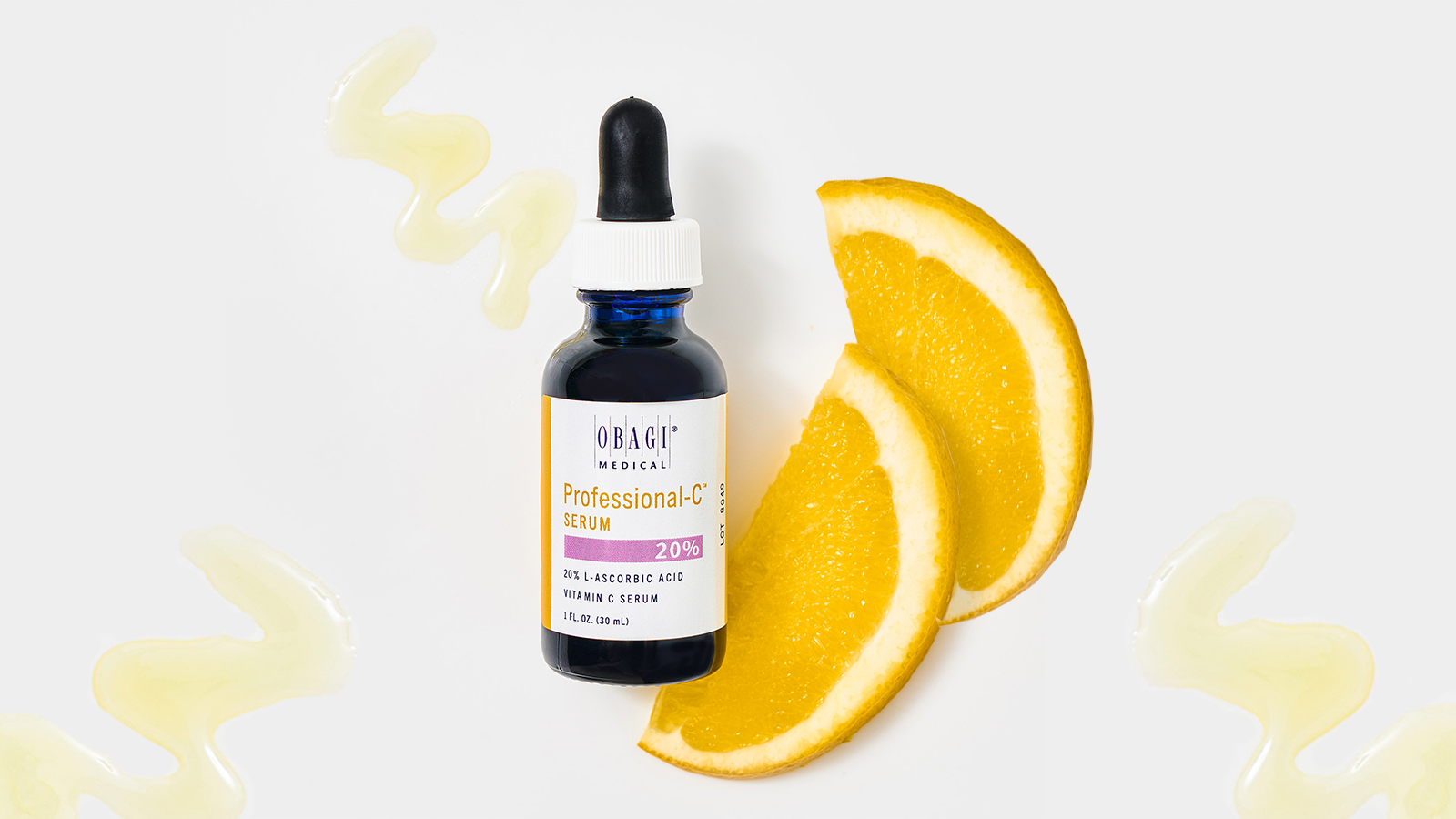Why is everyone talking about Vitamin C in skincare?
Anti-ageing, anti-inflammatory, brightening, collagen-boosting; the list of benefits goes on!
Why Vitamin C is *the* skincare ingredient to know.
Vitamin C is often referred to as ‘the holy grail of skincare’. But what exactly is it, what does it do, and how do you incorporate it into your skincare routine?

What is Vitamin C?
Vitamin C is a powerful and potent antioxidant with a magnitude of benefits. Also known as L-ascorbic acid – AKA the most powerful form of Vitamin C – it helps to minimise the signs of ageing, reduces inflammation, fights against free radicals and generally leaves skin looking brighter, healthier and smoother.
So how does it work?
Vitamin C isn’t naturally produced by the body, but to reap the benefits you’re going to need to do more than up your orange intake. Applying Vitamin C topically – think cleansers, toners and serums – is about 20 times more potent, and therefore most effective

How does Vitamin C help skin?
Vitamin C products have an acidic profile, meaning they help to exfoliate away dead cells from your skin’s surface. As a result, Vitamin C:
1. Brightens skin
By exfoliating the skin, Vitamin C helps to brighten your complexion for a fresh, healthy and youthful glow – what’s not to love?!
2. Retains Moisture
Vitamin C helps to boost and lock moisture in your skin when used in conjunction with your moisturiser.
3. Reduces the appearance of pigmentation
Thanks to its skin brightening benefits, Vitamin C also helps to reduce the appearance of mild pigmentation, such as dark spots. Plus, when used in conjunction with skin-lightening ingredients such as Arbutin, Vitamin C helps to propel the results even further, promoting skin rejuvenation, evening skin tone, and promoting a healthier-looking complexion.
4. Makes you look younger
Jam-packed with antioxidants needed for your skin to renew itself, Vitamin C helps reduce the look of fine lines and wrinkles for youthful-looking skin. The reason? Vitamin C promotes collagen production in the skin, which can naturally decrease as you age. By applying vitamin C to stimulate a collagen boost, your skin retains elasticity and is less likely to wrinkle.
5. Protects your skin
Because it is a powerful antioxidant, Vitamin C has been proven to prevent or reduce damage to skin cells by neutralising free radicals – AKA harmful molecules in the air that damage your skin cells. Vitamin C also enhances the effects of your SPF and fights against UV damage, thanks to its photo-protective qualities.

The When, Where, and Who!
Is Vitamin C suitable for all skin types?
Vitamin C is beneficial for all skin types, including those with sensitive or acne-prone skin. As a rule of thumb, start with a lower concentration (we recommend 10% for the most sensitive skin) and gradually increase the strength in line with the results. Ask your skincare professional for tailored advice.
What’s the best way to incorporate Vitamin C into my skincare routine?
Serums are the most potent form of Vitamin C. Incorporate Vitamin C into your routine with the Obagi Professional-C Serum with 10% ,15% and 20% L-ascorbic Acid. Use Vitamin C serums after cleansing and toning the skin, and before your moisturiser and SPF.
Obagi Medical® Products are available direct to your door – find a clinic using our Clinic Finder
Contact your nearest clinic using our Clinic Finder for product advice and to start your Obagi skincare journey
Share your skin radiance with #obagiuk




